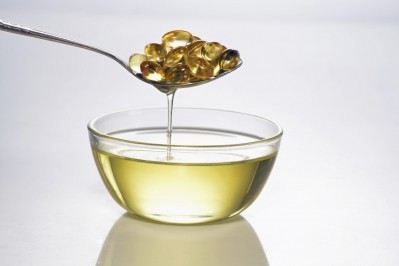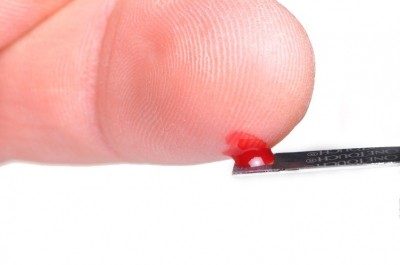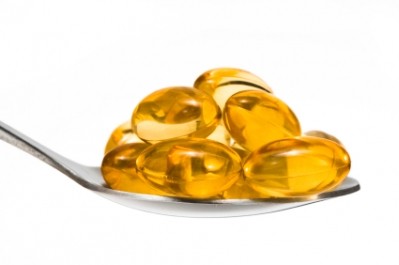Echium oil may boost blood omega-3 levels and improve heart health markers: Study

Supplements of Incromega V3 echium oil from Croda, which is a rich source of stearidonic acid (SDA), for eight weeks led to significant increased blood levels of eicosapentaenoic acid (EPA) and docosapentaenoic acid (DPA), but not docosahexaenoic acid (DHA), scientists from Friedrich Schiller University in Jena report in the Journal of Nutrition.
SDA is an intermediate omega-3 fatty acid in the conversion of alpha-linolenic acid (ALA), an omega-3 found in plants, into eicosapentaenoic acid (EPA), the long-chain omega-3 found in fish. Human conversion of ALA to EPA is relatively small.
“The efficiency of formation of EPA from SDA as ethyl esters (1.5–4.0 g/d) was estimated to be 16–20%,” wrote the researchers, led by Katrin Kuhnt, “whereas EPA formation was not directly proportional over the full SDA dosage range, suggesting that conversion of SDA becomes less efficient with increasing SDA intake.”
Results of the double-blind, parallel-arm, randomized controlled study also indicated that daily intake of 15 to 20 grams of echium oil led to significant decreases in cholesterol and triglyceride levels.
“Those individuals at higher risk of CVD and type-2 diabetes, i.e., individuals with metabolic syndrome, would profit from a daily intake of 15–20 g of echium,” addd Kuhnt and her co-authors.
“Echium oil as vegetable oil also could be a noteworthy source of n–3 PUFAs for vegetarians and vegans. Its unique combination of SDA, ALA, and GLA [gamma-linolenic acid] is considered to be relevant in health-related nutrition.”
The importance of finding alternative omega-3 sources
Harry Rice, PhD, VP of regulatory & scientific affairs for the Global Organization for EPA and DHA Omega-3s (GOED), told us that the importance of finding alternative sources of the long-chain omega-3 fatty acids is well-recognized.
“SDA is converted to EPA and SDA-rich echium oil is one way of delivering the SDA,” he said. “Given that it takes 17 grams of echium oil to deliver two grams of SDA, incorporating this source of SDA into the diet may be a challenge.”
Study details
The Jena-based scientists recruited 80 people to participate in their study. Normal weight volunteers were randomly assigned to a fish oil group (1.9 g EPA per day) or an echium oil group (2 grams of SDA per day, equivalent to 17 grams of echium oil). Overweight volunteers with metabolic syndrome were only assigned to receive the echium oil supplements.
After eight weeks of study, results showed that EPA and DHA levels increased by 168% and 68% in blood plasma, respectively, while DHA levels decreased by 5%. In addition, compared with fish oil, the efficacy of echium oil to increase EPA and DHA was significantly less, said the researchers.
Data from the normal weight and overweight volunteers indicated that a greater BMI was associated with lower increases in EPA and DPA.
While the fish oil supplements were only associated with reduction in triglyceride levels, the echium groups (both normal and over-weight volunteers) experienced improvements in cholesterol, LDL cholesterol, oxidized LDL, and triglycerides. The echium oil also decreased HDL cholesterol levels, however.
“[B]ecause SDA supplementation has been shown to effectively increase EPA in blood, it would appear that SDA has a protective role in cardiac events and type 2 diabetes mellitus,” wrote Kuhnt and her co-authors. “However, the preventive and therapeutic implications of SDA-rich echium oil remain to be fully determined. It is further possible that echium oil treatment affects eicosanoids and their derived metabolites, adipokines, and cytokines, especially in metabolic syndrome.”
Source: Journal of Nutrition
Published online ahead of print, doi: 10.3945/jn.113.180802
“Dietary Echium Oil Increases Long-Chain n–3 PUFAs, Including Docosapentaenoic Acid, in Blood Fractions and Alters Biochemical Markers for Cardiovascular Disease Independent of Age, Sex, and Metabolic Syndrome”
Authors: K. Kuhnt, C. Fuhrmann, M. Kohler, M. Kiehntopf, G. Jahreis
















